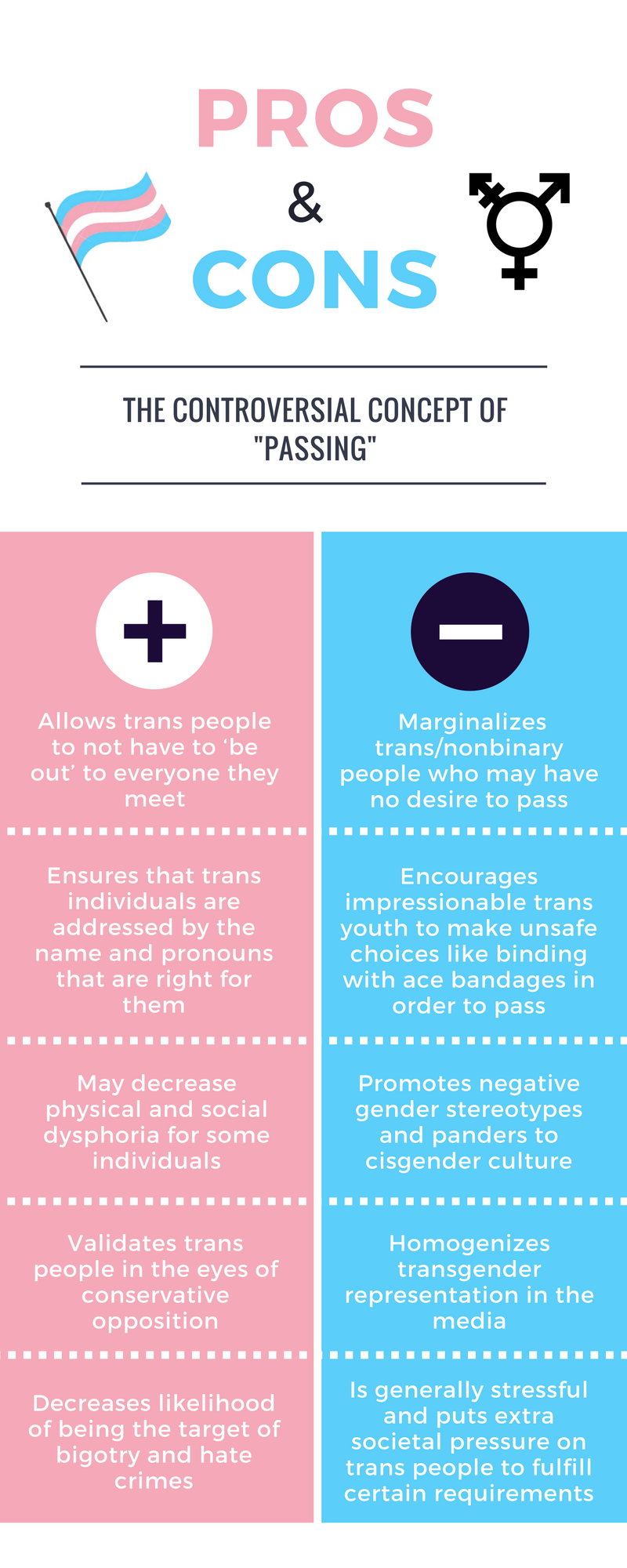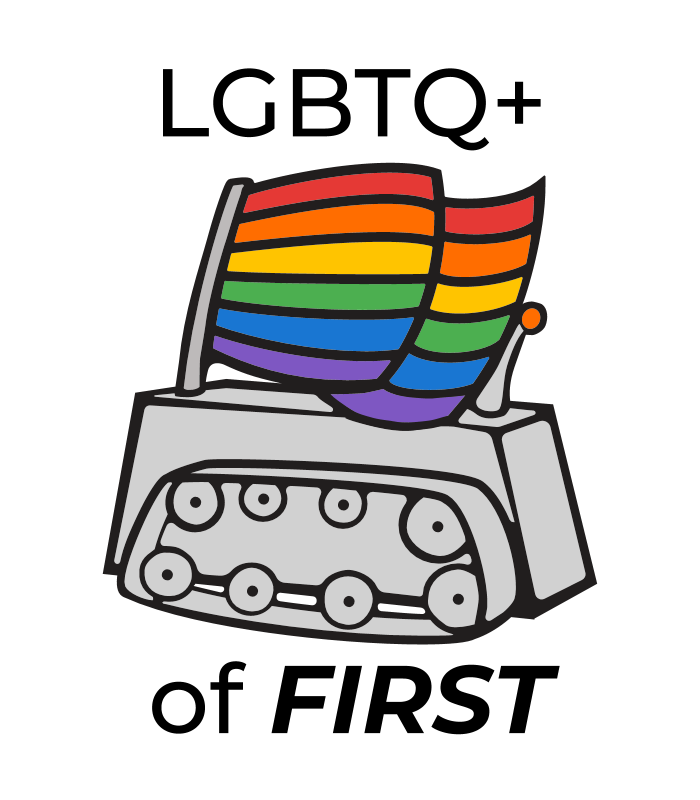|
So, it’s trans day of visibility. Obviously, there are a number of dates year-round that celebrate the queer community in some capacity; so many that some wonder why. I’d like to share a story to help people understand.
I was 16 years old, and only recently struggling with my identity. For the first time in a while, I was excited to “know” who I was, and ready to share it with someone. At my counselor’s office after school, I excitedly share the news: “I figured it out! I’m not a guy!” My excitement was not matched, as she gave me a look of shock and confusion. I don’t want to make this entirely about myself, so I’ll give the gist. The following weeks of therapy were extremely invasive and uncomfortable, to the point I simply refused to speak at times and leave after 5 minutes. We stopped shortly after as I pretended to be “better”. Much more harm than good was done in that period of time. My point is that people don’t understand trans people at the level they really should. Trans Day of Visibility is a day meant to promote that understanding. It’s for trans people to speak and have their voices heard. It’s important to acknowledge that for most trans people, their identity is not a choice. Gender Dysphoria (the condition that many trans people suffer from) is a painful neurological condition where one’s gender does not match their biological sex. It can only really be alleviated by gender affirming actions aesthetically, medically, socially, or in a variety of other ways. Even then, dysphoria is extremely limiting in many aspects of one’s life and never truly goes away. To make matters worse, trans people often face external barriers. These can manifest as “simpler” issues, such as the inability to find a bathroom they can use or gender affirming clothing that fits their body type. It can also appear as broader issues such as access to affirming care, employment opportunities, name changes, etc. The issues also extend into the abstract when social isolation, dissociation, and the ever-present feelings of not belonging are discussed. In addition, it’s not uncommon to face harassment, threats, or even violence for being trans just about anywhere in the world. As trans people face a cold and unkind world and likely will for years to come, change is happening. Where you are, it might not be legislative. It might not even be noticeable to most people, but it’s vital to creating a better future. At my most recent competition, my old marketing mentor didn’t know I was going by a new name and pronouns. When she accidentally greeted me with my deadname, my whole team (hailing from an extremely bigoted part of rural Indiana) all stepped in to correct her at once. You could look at the news and see all the legislation being passed to hurt trans people, but make no mistake, the humanity of most decent people will prevail as it always has throughout history. Looking at all this change, subtle as it may be, it gives me hope. While FIRST has a long way to go, the action they’ve taken and the environment they’ve created gives me hope. Seeing more people feeling ready to come out in spite of everything gives me hope. Not everyone can be visible today. Even within FIRST, many trans people are not able to live as who they truly are for a variety of factors. To them, I wish to say that we’re here, and we’re with you, no matter what team, nation, or culture you come from. It’s apparent in the pins, the pride flags, and representatives now being almost omnipresent at all FIRST events. I would like to thank you for reading this, and wish you a happy Trans Day of Visibility. - Eva True [Indiana] Hello everyone! First of all, happy Transgender Day of Visibility! I have not been a member of LGBTQ+ of FIRST for very long, but we are a very fun and accepting community. Today, being trans day of visibility, I and people everywhere are coming out and being visible. This day is wonderful because we are raising awareness and showing that there are strong, confident, and wonderful trans people all over the world in every skill and profession. I am so proud of every single one of you, closeted or out, questioning or positive, whoever you are. I am proud of you! You are strong! I would like to give a loud proud shoutout to all of the wonderful, smart transgender people of FIRST! You are all amazing people, you are very smart, and you are what makes FIRST, FIRST!
- Nia Ambassador, LGBTQ+ of FIRST Passing is the holy grail for many trans people, the almighty goal that they seek through the trials of transitioning. It is defined by the LGBT Resource Center at the University of Southern California as “successfully being perceived as a member of your preferred gender regardless of actual birth sex”, but the concept of passing is accompanied by controversy. It requires trans people to fit into a rigidly structured binary and fulfill gender stereotypes they may not wish to conform to, but it can also improve quality of life and keep them safe under circumstances where not passing would put them at risk. With both these arguments in mind, is the concept of passing helpful or harmful for the trans community? With regards to the earlier question, there is no clear answer. The concept of passing will remain controversial, and it is up to the individual whether or not they want to pursue it. Therefore, it’s important to remember that your perspective on passing does not hold true for everyone and that there are very distinct arguments on both sides. Like so many issues, it’s not a matter of black and white. Do what makes you feel the most comfortable, and respect the decisions of the people around you.
Have something to add to the conversation? Need some advice? Leave a comment below or tweet us at @LGBTQ_of_FIRST On May 20, 2017, STORM Robotics hosted its first annual FIRST Compass, an event where teams can give or watch presentations about different subjects in robotics. Representing LGBTQ+ of FIRST, Jaye and Sean presented this slide show to help teams in the MAR region and MAR itself learn how to be more inclusive to LGBTQ+ FIRST participants.
Since numerous teams seemed interested, LGBTQ+ of FIRST is sharing this presentation for all FIRSTers, especially those outside the MAR region and those who missed the event. Every LGBTQ+ students deserves a welcoming and inclusive environment. anonymous asked:
I am a mentor on an FRC team and one of my students just informed us that she is a transgender female. What can we as mentors do to support her and help her share this information with the team as a whole? Are there any resources available? Thank you! Hello! FIRSTly, we’re so glad that you’re being accepting and showing support by asking questions! We have some resources for trans women and parents/support on our resources tab of our blog [x]. Remember that she is the same person as she was before coming out. Any interests she had before she will likely have now. So if she loved mechanical work before, she’s still as competent now. Just remember to use the right pronouns and name while treating her with respect. You can also ask her if there is anything she would like to feel more comfortable on the team. Don’t beat yourself up over using her old name or pronouns; just apologize and move on. Everyone makes mistakes and the longer you dwell on it, the more uncomfortable she’ll feel. One thing many people do is ask questions, but make sure to be respectful. Don’t ask about anything you wouldn’t ask a cisgender person (AKA don’t ask about her private parts). Some questions that are appropriate would be “What are your pronouns?”, “What name do you go by?”, and “Are you out?”. The last question is important because you do not want to share information about her gender with anyone unless she gives permission. If she has come out to the team, support is as simple as reminding people to use the right name and pronouns. Try to use gender inclusive language such as “hello, team” instead of “hello, boys and girls.” If your team has separate uniforms for masculine and feminine people, ask her which one she would prefer. If you are staying at a hotel for a competition, allow her to room with girls if she is comfortable. If anyone on the team is having problems accepting her, speak with them. Everyone deserves to feel safe on the team. Lastly, treat her like you would treat any other girl on the team. If you usually compliment girl’s makeup skills or shoes, do that with her. If you see something online that you think she would like, tell her. Simply being there for her is the end goal. Tell her that if she has any problems, she can talk to you, even if it doesn’t involve the team. Make her feel validated and important. If you have any other questions, just send us another ask and we’d be happy to answer. ~Sean 5113 On April 18, 1981 Audrey Tang, formerly known as Autrijus Tang, was born. From a young age, she showed interest in technology and began learning the programming language Perl at the age of 12. Tang was a high school drop-out, but at the age of 19 she had experience in software companies as well as entrepreneurship in Silicon Valley. In 2005 at the age of 24, Tang began her transition (which is when she changed both her Chinese and English names).
With her IQ reportedly being 180, one can see that she is extremely intelligent, though that is quite evident in her accomplishments as listed below.
|
About LGBTQ+ of FIRST
LGBTQ+ of FIRST is a student run organization that advocates awareness and acceptance of LGBTQ+ students, mentors, and volunteers of FIRST Robotics. LGBTQ+ of FIRST reaches out to over 1000 members across the FIRST regions and fronts multiple outreach endeavors. Archives
June 2024
Categories
All
|



 RSS Feed
RSS Feed
